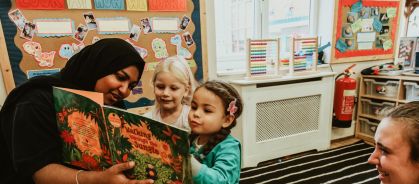
About Us
Inspired Learning and Education
There is no better moment than watching a child exclaim ‘wow’ in utter amazement, or seeing a light up smile spread across a baby’s face - imagination, creativity and curiosity flying into the ‘how’ and ‘why’ questions.
Cue them diving feet first into fully exploring for themselves. This is what makes a little one thrive, and we are passionate about creating these moments at every turn!
At Kindred, we are all about creating inspiring experiences and environments that are full of awe and wonder for little ones to grow and thrive in. As a childcare provider we are required to deliver an educational curriculum that meets the government standard of the EYFS (Early Years Foundation Stage). The EYFS acts as ‘golden threads’ pulling together all of the principles and research that underpin the requirements for teaching and learning of babies and young children in England.
These themes reflect the pre-requisites to enable children to become confident learners, who form positive relationships with others and are inspired to love learning forever. We cover all areas of learning in our nurseries and through our curriculum on a daily basis. However, we want children to thrive and grow with much more than that…
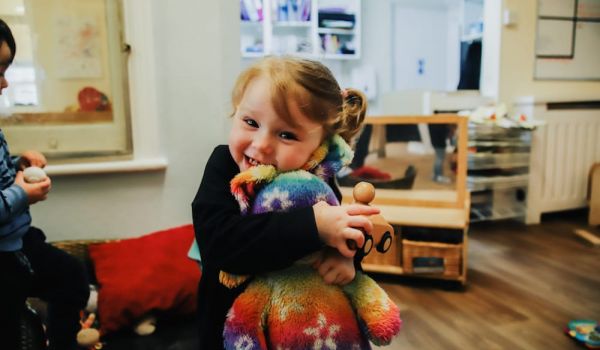
A Unique child
Babies and young children are first and foremost individuals, with unique personalities and a variety of abilities. Ideally, schedules and routines should flow with the child’s needs and not be tailored to meet the needs of adults. Our planning for babies and children starts with talking to parents and carers and spending time with and observing in order to understand and consider children’s current interests, development and learning preferences.
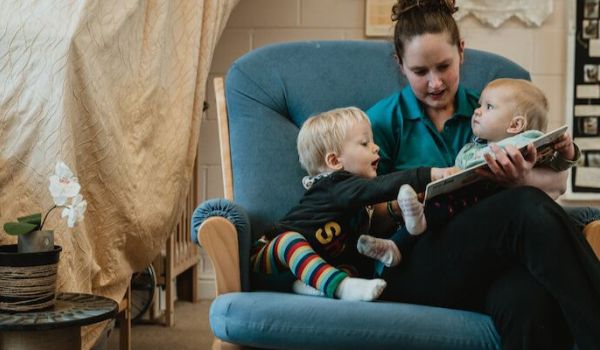
Positive relationships
The foundations for learning start when children feel safe, secure and happy. Where children form strong attachments with adults, they go on to become confident adults in the future (Bowlby, 1986). Building a strong and trusting relationship with a child helps practitioners to know how best to plan for their learning. They take into account: preferences, learning style, home culture and development stage. Good planning meets the ‘holistic’ (whole person) needs of the child and ensures effective foundations for learning. Our "play partner" system allows children to build strong, caring bonds so that they feel secure and confident in the nursery and beyond.
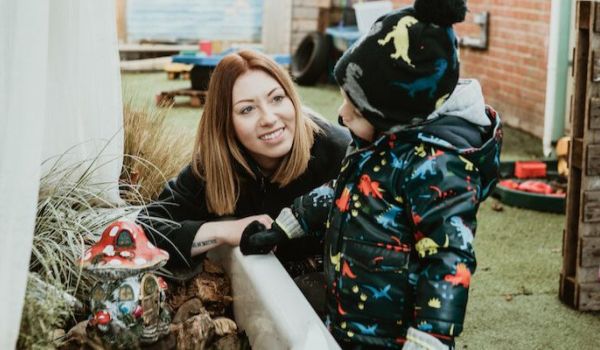
Enabling environments
Everything in the environment can’t be planned for on paper, but cleverly organised environments encourage learning and promote thinking. A learning-rich environment is considered to be the ‘third teacher’ (Malaguzzi, 1995) in which children’s experiences should respond to their individual interests, needs and learning styles. Our interactive planning provides not only planned ‘adult-initiated’ activities for groups and individuals, but allows us the flexibility to take advantage of ‘teachable moments’ that occur throughout the day, using spontaneous and unexpected occurrences. For example, the discovery of a spider in the garden, a rainbow or a fall of snow, all provide wonderful learning opportunities for practitioners to utilise, whilst the child is captivated and interested in the phenomenon. We have the privilege of observing a child’s reaction to seeing something for the first time and so we embrace and extend this rather unique opportunity, rather than take the child away from what they are enjoying to do something else. Pivotal learning takes place when children are engaged, stimulated and highly interested.
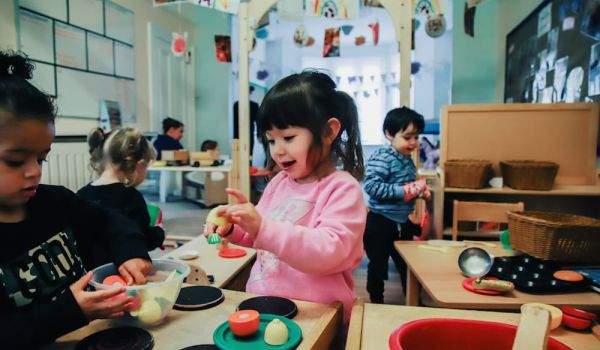
Different ways of learning
Where the EYFS themes are well catered for, learning and development naturally happens. We know that all children have different ways of learning and some will reach certain milestones quicker than others; this is normal. Some children become skilled in areas such as creativity; others walk or talk earlier or later than their peers; this is all normal. There is no such thing as a ‘typical’ child; only a ‘unique’ child. However, sometimes children will struggle and some children will need extra help from time to time to enable them to reach their potential. Where assessments show significant gaps in learning, it is our job to work with parents and carers to identify what we can do to support the child’s learning, to narrow these gaps.
We have worked very hard to create awe inspiring environments both in and outdoors that provide children with the opportunities to safely explore and investigate.
From mud kitchens to growing their own vegetables for lunch, inquisitive minds will learn how things work, grow and evolve.
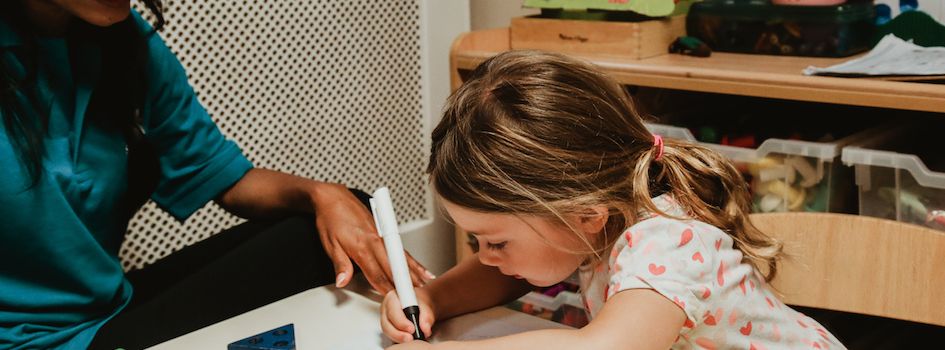
Summative Assessment
Regular observation informs planning. Key Workers will often stand aside for a while and leave room for learning, observe carefully what children do and use their observation to try to think what the child will want to do next. They build on children’s existing knowledge and their interests to plan activities that will allow children to learn new skills and build on what they already know and can do. Ongoing (formative) and summative (termly) assessment plays an important part in helping parents, carers and practitioners to recognise children’s progress, understand their learning needs and plan activities that support children’s development.
We never test children and children never know they are being assessed; our practitioners adapt activities to suit the age and stage and needs of individuals and extend learning as they see it happen through appropriate challenge.
Regularly throughout the year you will receive your child's "summative assessment" and between the ages of 2 and 3 years a `two year progress check'. You can arrange to meet with your child's Key Worker and the nursery manager at any time should you wish to discuss your child's development.
Within the summative assessment, the Key Worker will make a professional ‘best-fit’ judgement about the age and stage the child is working within, using the ‘Early Years Outcomes’ document and decide if the child is emerging, developing, or secure. This information is taken from written and visual observations, our experiences with the child and contributions from parents and any other professionals that may be working with the child. Appropriate supportive next steps will be planned in each area of learning. The most important thing is for the practitioners to check how well the child has progressed since their last assessment regardless of where they are on their personal learning journey.
